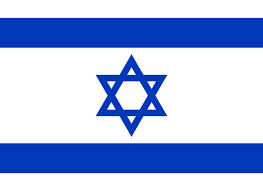Parashat Vayigash

This week’s parasha ends the suspense and anguish over how a broken and dysfunctional family would come together. Plagued by feelings of jealousy, betrayal, abandonment, disappointment, grief, hunger (famine) and more, Jacob’s family feels broken and seems beyond repair. This is not too dissimilar from where our Israeli brethren found themselves a few months ago with weekly protests heightening the deep divisions in Israeli society. In the Torah portion, at a crucial moment, love, empathy and unity prevailed when Judah, the family spokesperson, says to Joseph כִּי־אֵיךְ אֶעֱלֶה אֶל־אָבִי וְהַנַּעַר אֵינֶנּוּ אִתִּי פֶּן אֶרְאֶה בָרָע אֲשֶׁר יִמְצָא אֶת־אָבִי, for how can I go back to my father [Jacob] unless the boy [Benjamin] is with me? Let me not be witness to the woe that would overtake my father (Gen 44:34). Joseph, the powerful leader of ancient Egypt is moved by Judah’s plea on behalf of his brother. Years of bitterness, rage, and betrayal melt away, so much so that in the very next verse, he reveals himself to his brothers.
Having just returned from an emotional, gut-wrenching visit to our brothers and sisters in Israel, I find myself moved by the connection between our Torah portion and our people, for it reminds us of the deep family bonds and commitment to each other of Jews everywhere. On this visit, I saw Israel more united than divided, a country that understands that the strong ties that hold our mishpacha [i.e. family and people] together are stronger than what divides us.
The State of Israel experienced so much trauma on and since October 7th and it was heartbreaking to see its impact at close range. Yet, this tragedy has drawn the Jewish people closer to one another. I was reminded of this on our visit to Tel Hashomer (Sheba) Hospital where we visited with an infantry soldier from Efrat who was recovering from shrapnel wounds to his arms and legs. He repeatedly sought clarification about the purpose of our visit and was amazed when we explained that we are his family and had arrived to give love, support and light at the end of the Chanukah festival (I also gave him several of the cards written by our Krieger Schechter 4th grade students). The heavily bandaged soldier managed to slide his way up the bed, lift his head toward us and say “it means so much that you come [sic] all the way from Baltimore to visit. I know who my family is now.”
Like any family, passionate disagreements will continue to be aired, just as I imagine protests will continue to grow. Yet, the fundamental love for the State of Israel and Jewish peoplehood will ground us as we strive for a more hopeful and peaceful future.
It is precisely because of the deep love and bonds within our family that I am confident the State of Israel and our Jewish people will emerge from this horrible period stronger and more united than ever. V’chayn Yehi Ratzon.
Shabbat Shalom,
Rabbi Moshe Schwartz